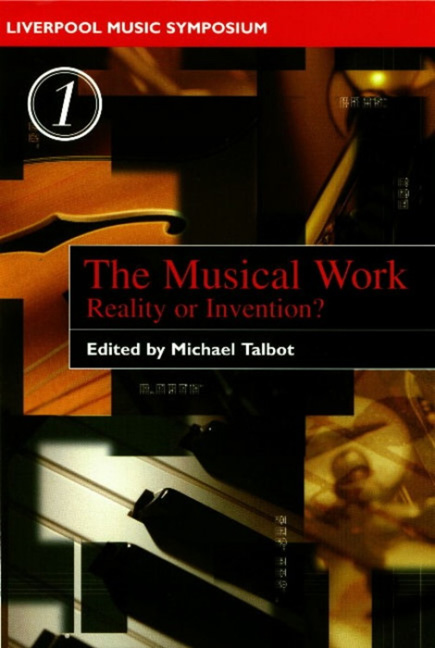Book contents
- Frontmatter
- Contents
- Notes on Contributors
- Introduction
- 1 Some Thoughts on the Work in Popular Music
- 2 Intertextuality and Hypertextuality in Recorded Popular Music
- 3 Work-in(g)-Practice: Configurations of the Popular Music Intertext
- 4 Work and Recordings: The Impact of Commercialisation and Digitalisation
- 5 The Practice of Early-Nineteenth-Century Pianism
- 6 Looking Back at Ourselves: The Problem with the Musical Work-Concept
- 7 ‘The Work’: An Evaluative Charge
- 8 The Work-Concept and Composer-Centredness
- 9 The Musical Artwork and its Materials in the Music and Aesthetics of Busoni
- 10 Re-composing Schubert
- 11 ‘On the Problems of Dating’ or ‘Looking Backward and Forward with Strohm’
- Index of Musical Compositions and Collections
- Index of Personal Names
11 - ‘On the Problems of Dating’ or ‘Looking Backward and Forward with Strohm’
- Frontmatter
- Contents
- Notes on Contributors
- Introduction
- 1 Some Thoughts on the Work in Popular Music
- 2 Intertextuality and Hypertextuality in Recorded Popular Music
- 3 Work-in(g)-Practice: Configurations of the Popular Music Intertext
- 4 Work and Recordings: The Impact of Commercialisation and Digitalisation
- 5 The Practice of Early-Nineteenth-Century Pianism
- 6 Looking Back at Ourselves: The Problem with the Musical Work-Concept
- 7 ‘The Work’: An Evaluative Charge
- 8 The Work-Concept and Composer-Centredness
- 9 The Musical Artwork and its Materials in the Music and Aesthetics of Busoni
- 10 Re-composing Schubert
- 11 ‘On the Problems of Dating’ or ‘Looking Backward and Forward with Strohm’
- Index of Musical Compositions and Collections
- Index of Personal Names
Summary
What happens when philosophers and historians quarrel over a date? The most favourable outcome is that each learns something from and about the other. This essay is a response to Reinhard Strohm's ‘Looking Back at Ourselves: The Problem with the Musical Work-Concept’ (pp. 128–52). I agree with Strohm that we reveal something about our modern selves when we interpret our desire to date this troublesome concept. But that agreement belies a tension between us that he already begins to make explicit in his title. His title refers to a looking back, when the argument of his text tells us to look forward. Whereas I chose in my Imaginary Museum to look back at the emergence of the work-concept from the perspective of 1800, Strohm urges me (and others) to look forward to 1800 from a historical juncture situated at least three centuries earlier. What turns on this difference of direction and starting point? Strohm likes to articulate this difference by drawing a contrast between the historian's real data and the philosopher's invented data. Let us see how far this articulation gets us.
The articulation is strange, not least because Strohm begins his essay precisely by objecting to the distinction between reality and invention that Michael Talbot employed in his title for the symposium in which this collection of essays originated. Though surely recognising the age-old philosophical debate that has given so much import to this distinction, and upon which Talbot was drawing, Strohm balks at the thought that if one speaks of concepts as ‘invented’ or ‘fabricated’, one is forced by the distinction to deny them their reality. To sustain this provocation, Strohm alters the traditional meaning of ‘real’ that motivated the (philosophical) distinction in the first place. He moves away from the metaphysical claim that ‘real’ means ‘given’, ‘natural’, perhaps ‘unchanging’ and ‘essential’, and makes it stand for something like ‘having lived a life’, ‘having existed’ or ‘having played a rôle in a practice’. His move is skilful: by shifting our attention away from the old metaphysical dilemma to the straightforward idea that the work-concept has existed, he also shifts the topic from the philosophical to the historical. When, he now can ask, did the work-concept exist, and when did it originate? One might think that Strohm would propose his own date for the origination of the work-concept.
- Type
- Chapter
- Information
- The Musical WorkReality or Invention?, pp. 231 - 246Publisher: Liverpool University PressPrint publication year: 2000

